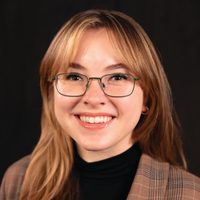On Monday, April 8, people in parts of the United States, Mexico, and Canada will have a chance to see a total solar eclipse, when the moon will completely cover the sun for a few minutes. Father Peter Giovanoni – the pastor at St. Michael Catholic Church and School in Ridge, Maryland who earned degrees in astronomy before becoming a priest – shared his plans for the day and the significance of the celestial alignment.
Before entering the seminary, Father Giovanoni studied astronomy and physics at the University of Maryland in College Park, where he later received his master's degree and Ph.D. in astronomy. He taught at the university for a year before beginning his seminary studies and later being ordained as a priest of The Roman Catholic Archdiocese of Washington.
Father Giovanoni said his students will stay after school on Monday to build eclipse viewers (also known as pinhole projectors, a box with a very small hole that allows a person to see the shadow of the eclipse make its way over the sun). Eclipse glasses will also be available for them to view the solar eclipse safely. He will also be using his telescope with a solar filter.
“It’s a unique experience that gets people interested in the skies,” Father Giovanoni said. “It’s a very interesting thing. Historically, it was used as a test of Einstein’s theory of general relativity. When the moon covers the sun in your area, you can actually see the night sky.”
He added that this was previously used to measure the bending of light around the sun before the technological advancements available now.
“This was one of the first tests of general relativity, that showed it was more accurate than Newton’s theory of gravity,” Father Giovanoni said.
He said that events like the eclipse are important, especially for students, because they pique their interest and inspire bigger questions.
“Experiences of awe and wonder are the kind of things that lead people into exploring, whether its science or religion, things like that. When I teach science to the kids, I try to interject things like that,” trying to find something that is happening that might stir their interest, rather than seeming like more forced homework, Father Giovanoni said.

Father Giovanoni shared some parallels in the two communities he straddles, priesthood and astronomy.
“[Astronomy] is something that attracts you for an interest in trying to learn the…mysterious of the universe. It’s the same type of thing that also can draw people to theology, the whole idea of learning things that really can’t be fully comprehended but the challenge of learning as much as you can,” Father Giovanoni said.
Although there are reports of conspiracies surrounding the eclipse, with some concerned it means doomsday is approaching, Father Giovanoni debunked this.
“We have, on average, two solar eclipses a year, and the world is not ending every other six months,” Father Giovanoni said.
These eclipses happen in different areas of the world, which is why Father Giovanoni encourages people to look beyond what is impacting their immediate area, not just with astronomical events, but other occurrences as well, to develop perspective.
“A little bit of knowledge is a dangerous thing,” he said jokingly.









